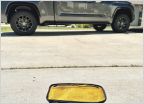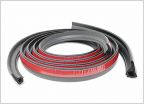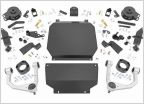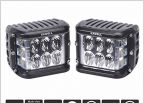-
Welcome to Tundras.com!
You are currently viewing as a guest! To get full-access, you need to register for a FREE account.
As a registered member, you’ll be able to:- Participate in all Tundra discussion topics
- Transfer over your build thread from a different forum to this one
- Communicate privately with other Tundra owners from around the world
- Post your own photos in our Members Gallery
- Access all special features of the site
Octane rating advice
Discussion in '3rd Gen Tundras (2022+)' started by Medic343, Jul 28, 2022.
Page 1 of 3
Page 1 of 3


 Chain storage option
Chain storage option Best way to seal forward upper corners of bed
Best way to seal forward upper corners of bed Always on power in cab for GMRS radio
Always on power in cab for GMRS radio 2022 tundra platinum riding rough/bumpy after 3.5 in RC lift kit
2022 tundra platinum riding rough/bumpy after 3.5 in RC lift kit Gap filler for driver and passenger seats
Gap filler for driver and passenger seats Light bar size and extreme budget lights question
Light bar size and extreme budget lights question














































































